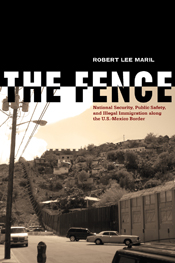Posteado el 20 de Junio de 2020 por Lee Maril
Hace más de dos años atrás, el Presidente Trump envió a la Guardia Nacional hacia nuestra frontera con México (para más información vea mi blog del año 2018 que encontrará abajo). A partir de esa situación, en ese entonces cuestioné, así como lo estoy haciendo ahora, si esa fue una buena decisión estratégica o sólo otro intento de obtener el respaldo público a un muro fronterizo ya existente. Finalmente, como decisión política no logró generar el respaldo público ni del Congreso. Por lo que me pregunté, tal y como lo hago ahora, cómo exactamente los de la Guardia Nacional, quienes están entrenados como soldados, iban a ser utilizados a lo largo de la frontera, ya que, a diferencia de la Oficina de Aduanas y Protección Fronteriza -en inglés CBP-, solamente unos pocos hablan español, saben las leyes sobre inmigración, están familiarizados con la cultura de quienes viven en ambos lados de la frontera o saben cómo efectivamente proteger nuestro único límite geográfico con México.
Lo anterior son, en resumen, todas las habilidades y experiencias cotidianas que los agentes de la CBP poseen, diferenciándolos no sólo de la Guardia Nacional, sino que de la mayoría de los demás organismos y programas federales, estatales y locales. Igualmente preocupante es que la CBP posee su propia historia y cultura institucional que sugiere, claramente, que no debe ser enviada para la mayoría de las otras misiones y tareas policiales.
En las últimas semanas, el Presidente Trump convocó a la CBP para proteger Washington, D.C., durante las manifestaciones ciudadanas. Además, un dron de la CBP fue visto y documentado sobre Minneapolis en el transcurso de las protestas por el tiroteo a George Floyd, siendo que el territorio de Minneapolis no está dentro de la jurisdicción de la CBP.
Así como la Guardia Nacional no tiene ni la formación ni la experiencia para apoyar a los agentes de la CBP, los agentes de la CBP no sólo carecen del entrenamiento y la trayectoria que son necesarios para proporcionar apoyo a las fuerzas de seguridad en el control de las protestas de los ciudadanos de EE.UU., sino que también no poseen una historia o cultura que demuestre que son capaces de controlar multitudes de ciudadanos estadounidenses. Si esto no fuese suficiente para cuestionar la decisión del Presidente Trump, está también el hecho de que los agentes de la CBP tienen facultades legales excepcionales en comparación a otras organismos de seguridad.
Si bien estas facultades legales tienen sentido cuando se aplican a las patrullas de la CBP de las zonas fronterizas, no lo tienen cuando son aplicadas a los ciudadanos que protestan ejerciendo sus derechos de la primera y la cuarta enmienda. Entre estas inusuales facultades legales que tienen los agentes de la CBP, como el derecho de detener a una persona, registrarla, confiscar sus objetos personales, incluyendo su teléfono y computadora, también pueden arrestar a los ciudadanos de EE.UU. si las circunstancias cumplen con lo que el agente de la CBP cree que es una sospecha razonable. Esta sospecha razonable tiene un estándar legal mucho más bajo que el estándar legal de causa probable que la policía municipal, por ejemplo, jura defender.
La primera pregunta entonces es, ¿qué tan eficaz fue la CBP, debido a su experiencia en materias de seguridad fronteriza, en la prestación de apoyo a otros agentes del orden y en el control de los manifestantes siguiendo la ley al pie de la letra? Además, ¿las excepcionales facultades legales de la CBP fueron utilizadas contra los protestantes ciudadanos de este país? ¿Por qué la CBP fue llamada desde un principio por la actual administración para controlar las manifestaciones de los ciudadanos de EE.UU.? Y, finalmente, ¿qué organismo federal le pidió a la CBP que proporcionara uno de sus drones para vigilar Minneapolis, el cual es un territorio que no está dentro de la jurisdicción que la CBP tiene asignada a cubrir?
Estas son sólo algunas importantes preguntas que la opinión púbica debería estar haciéndose y la CBP debería responder. Finalmente, ¿por qué la CBP guarda silencio? ¿Por qué la CBP, que fue creada por el Congreso en 1924 con sus especiales competencias y excepcionales facultades legales, debería ser enviada contra las manifestaciones de los ciudadanos de EE.UU.? Este no es un desastre natural como el huracán Katrina, en cuyo caso la CBP proporcionó ayuda y consuelo a quienes lo sufrieron.
¿Quién, por el bien del público, está vigilando a la CBP?

